Immersion

"I sometimes wonder if they even know what they've done."
I yesterday caught myself immersed in a book. I'd started the book more out of obligation than attraction. I'd spotted it in the library and found a strange attraction to it, though it came as an English translation from its original French. Then I kept it unread for nearly three weeks before sensing an impending past due notice. Opening it then, I learned that the manuscript had been delivered to the publisher by a retired attorney who had twenty-some years earlier agreed to deliver it following the death of the author's mother. The author, himself, had thrown himself in front of a train shortly after delivering the manuscript to his lawyer. This was the author's second novel, the first having finalled for a Man Booker Prize. Upon receiving the package, a junior publishing house clerk deposited it into the dreck pile where it remained unacknowledged for several months until a more senior partner found it. A flurry of authentication activity commenced, finally resulting in publication. I didn't suspect then that this set-up was part of the fiction. The book was actually written by the well-respected Scottish novelist Graeme Macrae Burnnet.
An Accident on the A35 is set outside of Strasbourg, France, and follows a rather bumbling small city chief of police as he investigates a fatal automobile accident, but all this plot serves as a nothing more than medium for something quite otherworldly.
WeeSmall

"I chose to engage in some WeeSmall choosing instead."
"from dusk till dawn,
As the clock ticks on,
Something happens to you."
from Wee Small Hours by Bob Hilliard 1955
My most productive hours come in a WeeSmall size. The hours after dawn opens up, eventually spread between horizons, but the predawn time compresses into concentrated capsules. Like dog years, WeeSmall hours contain more time, in spite of their misleadingly tiny appearance. Distractions avoid WeeSmall hours, needing more space to frantically wave around their arms. Bright shiny objects seem relegated to modest sizes situated in outer space, hardly capable of disturbing concentration. The WeeSmall hours bring contemplation, the human facility capable of sorting through life's many and varied contradictions. Without my WeeSmall contemplative time, I might simply take this world and all its charms at face value and never suspect the many and varied interpretations I might make. In this way, the WeeSmall hours fuel better-informed choosing. In the dark and the cold, I feel safe to try on a variety of alternatives. By the time the sun starts thinking about rising, I'm almost present to my day, having made some initiating decisions which will reverberate in action thereafter. I can set aside my trial balloons and set about moving somewhat more deliberately.
I will probably have figured out nothing, but I will have sorted through the nature of the confusion.
ColoradoSprings

" … salvation always on the wing."
I dreaded the coming of Autumn and the demise of our languid summer. I imagined, as I always imagine each end of September, that the snows would shortly start flying and The Muse and I would be sequestered beneath a snowbank until Spring, but the seasons don't work like that here. Forgive me for forgetting, but in Colorado, Autumn and Winter features more Spring-like weather than bitter cold. Sure, the weather here can turn on much less than a dime. Temperatures comfortably drop forty of fifty degrees in an hour or two, but not every day, not even every week. The weather turns both downward and upward, some dreary days melting into warm sunshine and the sound of moisture moving into the earth. Warm enough to paint outside. Warm enough to forget even a jacket as I step outside. Some plants dry to desiccated stalks but others seem nearly impervious to frost and seem to revitalize each time the warm sun reappears, and it seems to reappear a lot here.
These Autumn and Winter Springs seem capricious, and nobody gets their hopes up for a solid week of reprieve, but a day or two, sprinkled here and there throughout the dismal seasons seem adequate to recoup flagging spirits.
Fizzle

"Soaring lasts longer than any crash."
Some plans gang agley, they go wrong. It's not really the plan that goes wrong, though, but the expectation of satisfaction the plan set up. The plan was fine, but the expectation proved faulty. The expectation, too, was just fine until it wasn't, perhaps even motivating hopeful pursuit, which is the very best kind, so the expectation wasn't really wrong either, not as long as it remained an expectation. At some hand-off point, the perfectly fine expectation fizzled out, as all expectations must eventually do. Perhaps it was whatever took over the expectation space's fault. I believe that we humans might be hardwired to expect good things to happen. Consistently expecting the worst gets classified as a mental disorder while hopefulness is seen as the cure. In that moment when hopefulness turns into cold despair, anyone might reasonably begin misattributing the cause back to the plan or the expectation, both of which were fine until encountering some Fizzle.
These discouragements sometimes prove fatal, but not usually.
Dreadline

"I wonder what will keep me awake then."
I have a deadline looming. How is it that once a deadline's set, it does tend to loom, to threateningly hover over? I once took to calling these time marks 'stay awake dates' to try to ward off the associated sense of impending doom. The purpose of a deadline should probably not be to suck all the motive force out of the effort to meet that date, but they do seem to do exactly that, so I tried to associate those dates with a more positive moniker. Still, the inherent inevitability seemed to cloud my mind no matter how I tried to counter its influence. This particular Stay Awake Date seems more like a drop dead date, anyway. I'm really not trying to stay awake, but more interested in letting the time fly by so this date will fall behind me. This one represents a surgical procedure scheduled for tomorrow morning. I've been watching the countdown clock trudge away all day. It trudges exceedingly slowly.
I'm unlikely to drop dead once this drop dead date appears.
GrowingUp
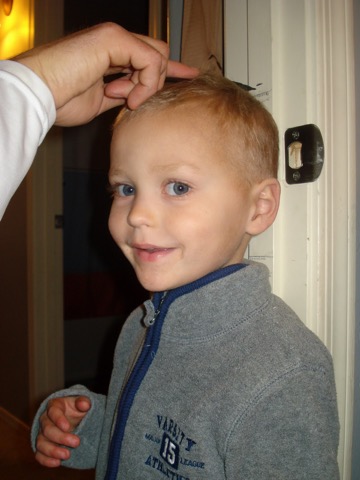
"I am about as strategic as a strand of overcooked spaghetti …"
Sometimes I wonder if I'll ever grow up. I've been growing for a very long time without really feeling as if I'm anywhere close to up. I'm still a kid at heart and not yet really much of a part of the grown up world, which continues to mostly mystify me. I prefer the company of small children, those still mastering the language but not yet outgrowing absurdity. I like to puzzle through the world with those who presume that I might know better, then demonstrate that I probably don't, and that they probably do. I tend to appear a fool around them, which suits me fine. I think I might hold the responsibility to never overshadow kids, to let them run the world we share. I don't really have much faith in grown-ups.
I know, kids grow up fast, though I didn't.
Dentity

"Holding that question seemed worthy of me, but finding the answer, deadly."
Who am I? ranks near the top of the list of Fundamentally Unanswerable Questions (FUQs for the acronymic among us). Since FUQs remain presumed unanswerable, they pose a particular challenge. FUQs never prove to be Fundamentally Unaskable Questions, though, and we tend to ask with the same spirit that governs the old Seek And Ye Shall Find conundrum. Seeking without finding remains a common experience regardless of what the homilarians (people who promote the indiscriminate application of homilies) might insist. It simply does not follow that an answer exists simply because I can ask the prompting question. Part of maturity might include the growing ability to distinguish between FUQs and the fundamentally answerable ones.
Declaring a question fundamentally unanswerable does not render it unconsiderable, though.
A Brush With The Transcendent

"… after I'd lost track of myself."
I reluctantly engage, as if facing some impossibility. I know how to paint, but never seem to trust my instincts or understandings beforehand. I make a deliberate ritual out of gathering materials, the thin rubber gloves, the defiled paint can, the handy hand-held paint cup, my spattered havelock, my special spotted shoes and smock, my ragged jeans. I try to preplan the job, imagining that my perception could extend into the near future, though I know for certain that I will never know anything until I show up and lose myself, immersed in the job. Too much depends upon altogether too much for me to foresee very much of anything. I intend to do some painting.
Painting occurs on some different plane where present remains as permanence. Imagine if a breath became a sculpture, an instantaneous addition to the permanent collection.
GoingBackToGoBackToGo

"Iterating 'more perfect' never produces perfection, thank heavens."
The General Electric Corporation's advertisements, back when it was the largest corporation in the world, used to tout that "Progress Is Our Most Important Product." What then? I assumed that by injecting progress at every step, the company plugged into a positively recursive progression, where progress built upon progress to create ever more sublime expressions of progress until reaching some sort of engineering nirvana. Then people started asking what they meant by progress. GE started focusing upon financing more than engineering, and as companies tend to do, they dabbled, then grew to dominate, a rather shady side of the street, credit default swaps and other "junk" instruments. How does one inject progressive quality into the junk financing market? GE managed it by swallowing many bad investments, essentially swallowing themselves like James Whitcomb Riley's infamous Squimum-Squeegy "what swallered his self." GE was recently delisted. Now it seems to be GoingBackToGoBackToGo on the great Monopoly® board of industry.
GE serves as just another more recent example of companies following Ozymandias' lead. The mighty fall. The great ultimately achieve greater humility.
InSlight

" … a land filled with freaks and the home of true knaves?"
The story dries up sometimes. It dries up and blows away, carried by outrage turned inward. Beyond some point, I can no longer smugly refuse to take the endless insult personally. The daily news no longer seems new. It becomes a recursive same old thing, irrational inventions intended to keep everyone feeling off balance. The only defense becomes another offense. Symbolic fences become indefensible walls. Calls for civility sound like cat-calls, chiding, deriding. The whole world seems populated with grudgy eight year olds, perpetually offended, somehow short-changed. This world then seems fundamentally unfair, bounty-hunting the good guys, posting gloating photos of her latest kill. Everybody becomes somebody's shill and everybody knows it, bracing in the crash position for the following unavoidable collision. Pick a fight, lose, then pretend it didn't hurt. Stand tall on pseudo hind legs, proclaiming another victory. A victim's victory, righteousness reinforced by the persistent absence of any discernible success.
The moral of the story seems inside-out. Good guys never win. Charity becomes evidence of great personal weakness. Humility, a symbol of absent grit.
GivingThanks

" … that trailer park experience never leaves her."
No Thanksgiving season passes without The Muse recalling the holidays she spent living in a trailer park outside Fayetteville, Arkansas. However fine her sensibilities today, she's known times when three for a buck box dinners satisfied her hunger, and times when three for a buck seemed too dear to always hope for. The beneficiary of charitable giving, she revels in her present of role as benefactor. So when the local realtor came by the place this week to drop off an empty grocery bag, The Muse's eyes lit up. The note promised that she'd be back after nine thirty the following Saturday, so the deadline was preset. Saturday morning, The Muse was up by five, asking when the supermarket opened. We were out of the house by six, a winter storm gratefully delayed for a promising few hours.
The supermarket aisles were littered with packing boxes as a cadre of clerks restocked shelves for the weekend before Thanksgiving rush.
ForcingChoices

"More choices rarely produce better results …"
Sixty years ago, when this time of year arrived, my siblings and I would begin our annual attempt to hog the new seasonal Sears Wishbook catalogue, where we'd imagine alternative universes in preparation for Christmas. I'd eyeball almost everything, mentally trying on that sweater and playing electronic football, making lists, chucking them many more times than twice, overwhelmed by the sudden appearance of so many choices. Knowing that I'd ultimately pare down my list to a bare handful only made making my choices more exasperating. The greater the number of choices, the more difficult the choosing because any choice excluded dozens of alternatives. I welcomed the early days, just after the Wishbook arrived, but after five or six weeks of concerted study, I was ready to settle for anything, or even nothing, just to conclude the ordeal of choosing.
This season, no Wishbook arrived. The local Sears sports a huge Going Out Of Business sign.
UnderFoot
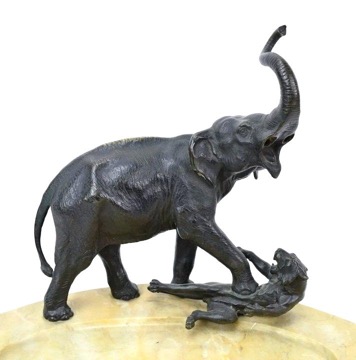
"That's ninety percent of any boss's job, anyway."
I spent my day trying to stay out from underfoot. It's a skill I learned from my earliest days. In my time (spoke the geezer), children were either underfoot or not underfoot. Underfoot was a bad state, a situation that would inevitably result in some form of chastisement. A child then should have been seen but not heard or, better yet, not seen, either. I was raised in a world almost exclusively inhabited by adults and children hiding out, lest we be seen, or worse, heard. No Black Hawk Helicopter Parents then, we were born sort of independent, or independent enough to know that we could not rely upon our elders to stroke the odd ego or attend to emotional needs. These days, and, indeed, in my own children's childhood, the kids are buddies and their parents their co-conspirators. Then, we were flotsam in public, best left to our own designs. If we made trouble, we prayed that the news wouldn't make it back to the mothership. We were largely on our own, and grateful for the space.
I spent this day trying to stay out from underfoot because I had workers on the place.
Blue-er

"I settle for accepting this tiny overwhelming one."
The sky 'turns' blue after the snowstorm passes. During the storm, the sky disappears, moving so close to the ground that it essentially leaves. Ground and what used to be sky turn into one indistinguishable entity. Up falls down and down slowly moves up as snow accumulates. Outside loses a dimension. Even sideways takes a hit as horizon shrinks to barely across the street. I stand imbedded in a snow globe where the dimensions of the globe, of the entire world, shrink to barely arm's length. Inside, the rooms seem smaller, too. The house suddenly more homey, I feel warmly contained. The world seems almost understandable then, complexity reduced to the near absolute simplicity of accumulation. I ask myself, "How deep is it now?" Depth easily and unambiguously determined, I hold no further questions. I shovel off the latest layer completely satisfied, knowing full well that I'll need to shovel off subsequent layers before the storm passes. I seem reduced to mere observer, appreciative of the narrowing obligations. I'm out of toothpaste and try to drive out, but turn around in a preponderance of caution, relieved to return unharmed. I find my travel stash and conclude that I moved on false fears, and that maybe I could accept that my responsibilities lie right here and nowhere else for now.
Acceptance seems a terrible burden. Even grace, that most under-appreciated gift, wants nothing more complicated than acknowledgement.
CityLegs

" … feeling about half the man I fondly remembered that I used to be."
In cities, people live on sidewalks. In suburbs, cars. When not on sidewalks, city people might hop a bus or the subway, sometimes even grab an Uber between neighborhoods, exiting onto yet another sidewalk again. In suburbs, it's cars all the way down. When the suburban visits the city, they drive their car, which they are shackled to for the duration of the trip. Should the suburban find themselves fortunate enough to find a place to park their car, they also find good reason to grumble about the price for parking, then still find themselves shackled to wherever they parked the damned thing, carefully monitoring how far they've wandered lest they find themselves cut off from their hasty escape. City people develop CityLegs, ones accustomed to a twelve block stroll. Suburbanites might notice blisters forming on their feet after four or five blocks. And the blocks seem so big, littered with distractions, shops for every faction living there; with curious customs. The proprietor might want to chat. What should a puzzled suburbanite think of that?
The urban/rural divide isn't a simple six of one versus a half dozen of another. It's long division, requiring some heavy lifting to carry remainders across columns separated by wholly different dimensions.
Armistice

"Let us bless each other, then, for nobody else could ever be qualified to."
I wasn't there, a hundred years ago today. Neither was my maternal grandfather, though he was in uniform sitting on a troopship in New York Harbor, halfway there from home. Amy's grand uncle wasn't there, either, for he had become a casualty of that last big push along the Marne, mired in mud and insanity like this world had never before imagined, and can hardly remember after. Twenty million, probably many more, had been disqualified from attending, too, having become casualties before hostilities could cease. A few millions more, who might have attended but didn't, and a few who did show up, would fall prey to the Spanish Flu within the following year or so. It was a time when on any day, someone might simply go away as if they'd never even been here. They sang that they were over there though none knew where over there was or would be.
Last year, The Muse and I were honored to visit the cemetery where her great uncle lies, a stunningly beautiful park.
DazeOff

"Forced into mindfulness, we muddle around hoping to stumble back into our familiar habituals again."
Years ago, The Insurance Company where I worked distributed Covey's Seven Habits to all management, strongly encouraging each recipient to carefully read the book, for it described how the company would henceforth operate. This title remains the only book I've ever felt moved to burn after reading. It helped accelerate my timetable for leaving the company and not only because it described a manner of living utterly alien and repulsive to me. One may not prescribe any habit without bumping one's head on a low-hanging Be Spontaneous! Paradox. Habits remain the antithesis of mindfulness, more indicative of obsession or compulsion than choice. The author described what seemed to me like a two dimensional solution for an n-dimensional difficulty, a superficial strategy for inducing some sort of pseudo-significant effect, affects too-desperately seeking causes. I felt crazy reading it, so I figured the very best service I could provide to the world would be to eliminate any possibility that my copy might infect anyone else, so I built a fine fire and threw that sucker in there.
Books don't burn all that easily. It seems as though they resist actually burning.
VoeTing
"What we choose to do with the result determines its meaning as well as its significance."
In his Hitchhiker's Guide To The Galaxy, whenever author Douglas Adams' protagonist Arthur Dent found himself in serious peril, an impossibility generator would shift the plot into something completely different, if not always any less threatening. I think of voting as just such an invocation. Some mistake it as a referendum on knowledge or intelligence, and understandably so, but improbability generators hardly ever produce logical or rational (knowledgeable) results, but usually unlikely ones. Before the election, pollsters and pundits carefully take the electorate's pulse, just as if an electorate possessed such a thing, then project results with appropriate-seeming ranges of probability. Sometimes these predictions turn out to be true, though nobody ever investigates the root cause of their seeming accuracy when they are right. Folks seem altogether too busy failing to explain instead why they were wrong when they turn out to be wrong, the correct answer finally becoming beside anyone's point. This practice only seems smart, and might actually be smart, but how smart is smart in practice?
My point about voting might be that it is almost but not completely unlike (to borrow another Adams phrase) an exam. It was never intended to survey for correct responses, though each voter might well hold convictions about right and wrong for themselves.
Wealth
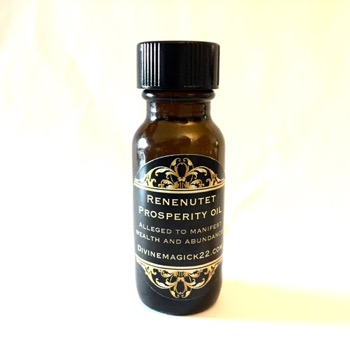
"I am a serial offender against the Law of Attraction."
As I neared graduation from my undergraduate studies, envoys from the Business School started asking me to coffee. Some of these had served as my instructors through my three years of university study. They described the turbo boost that a Master's would add to my upcoming career, and the B-school would finance it all if I agreed to teach classes while I studied. The two year commitment would guarantee me sixty or more hour weeks. By then, I was holding down a full time job and a little more than a full load of classes, burning myself out trying to rid myself of the damnable anvil of schoolwork. I had a family by then, a newborn son and a wife with clear and undeflectable intentions of of bearing a second child shortly thereafter. We'd just been displaced from our rental by a landlord who chose to raise the rent monthly to keep up with the fifteen plus percent annual inflation rate. We'd borrowed from family to buy our first house, a place that we didn't know would quickly lose twenty percent of its value, in the hopes of at least stabilizing housing costs. My job paid for my books and tuition as an employee benefit, but I had to work full time to collect the benefit. My life already seemed plenty turbo-charged at that moment.
I declined the opportunity to pursue my MBA, reasoning that my time spent with my newborns would not be deferrable until any later date. I simply didn't want an MBA enough to sacrifice what I was already barely holding onto.
DaylightEnslavementTime
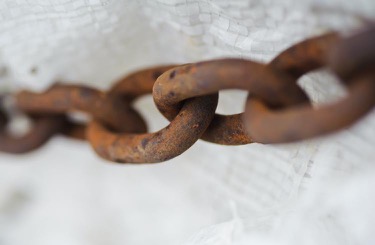
"I'll probably recover."
Once there was a time before time, before we managed to finely measure it. Then, all time was approximate, never exact, or never more exact than a cast shadow. When the sun stood directly overhead, one could say, "It's noon," without receiving a bunch of guff in return. A mile down the road, noon arrived at a different time than it did here; a constant difference, but nonetheless a difference. When mankind still moved at the speed of a walking horse, these differences didn't matter to anyone. The telegraph and steam-powered transportation changed everything. Once train passengers needed to make connections with steam ships, it became a lot more difficult to determine the time. The mighty Union Pacific operated on Omaha time, two hours ahead of Oakland time. A steamship might maintain its schedule according to its headquarter's time, meaning that Omaha time and Cherbourg time collided there. Modernists finally managed to negotiate an international treaty which calibrated standard times relative to Greenwich Mean Time, an act that infuriated farmers and fundamentalists worldwide.
During WWI, various national governments took exception to their earlier agreements, instituting a more thoroughly modern Daylight Savings Time, reportedly to provide more daylight to aid in the manufacture of war materiel.
LarderFridge

"Certain ethics govern the acquisition of a LarderFridge."
Three and a half years have passed since we last owned a LarderFridge, a ramshackle second refrigerator intended to hold overflows. leftovers, and beer. It's been a genuine ordeal. In Winter, of course, we enjoyed the walk-out refrigeration services the weather delivers directly to our deck. Last week, the pot of leftover pozole and a nearly full gallon of sweet cider sat knee deep in fresh snow, though by Friday that snow had melted and I had to direct the refrigerator's contents to scrunch up so those babies would fit inside. Late in the week, The Ever-Vigilant Muse noticed another refrigerator give-away on the local listserv and she immediately contacted the owner. We'd been trolling for a free fridge for three and a half years, narrowly missing more than a few. This time, the owner replied that she'd already found a taker, though she'd leave us in the queue. Friday, she contacted us again, saying that the first taker had declined the offer. We readily and unconditionally accepted, sight unseen. We were that desperate for an "extra" fridge.
Certain ethics govern the acquisition of a LarderFridge. One may not, for instance, just go buy one, for that would demonstrate both a lack of faith in providence and a demeaning over-eagerness.
MisterCommunication
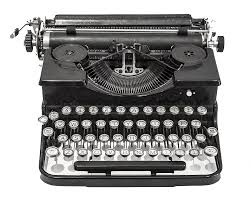
"Maybe we could muster a week-long workshop on interpersonal miscommunication."
I think of myself as a solid journeyman communicator, certainly not a master. I've studiously avoided delving too awfully deeply into any of the many linguistic theories and practices. Neuro-Linguistic Programming gives me the creeps. Noam Chomsky reliably puts me to sleep. Formal grammar simply seems beyond me. I navigate language employing a mostly-reliable felt sense. I generally manage to make myself understood. I'm quick with words, skilled as producing the encapsulating phrase, and, though a lousy speller, a half-way decent writer. I still surprise myself, though, when rediscovering the first principle of communication, that it's often the illusion that it's occurred. I'm perfectly capable of flowing along convinced that I'm on the same page before shockingly catching on that I'm not even in the same library as my counterpart. I'm growing toward accepting these disconnects as imperfectly normal, though they still shock me every time.
I learned last night that The Muse will be heading out to attend a week-long workshop in New Orleans on Monday morning.
FallowTime
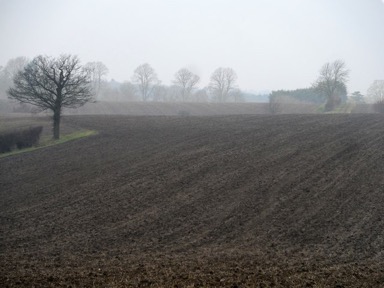
"Nothing like that looms until planning season comes."
Long planned, I quickly executed the work in four days spread over three weeks, owing to the weather and my personal preference for procrastination. Too much sun or two much wind and I figured I was better off waiting for some better moment. The final push, two frenzied days, occurred as they always seem to, in a blur. Once I allowed myself permission to finish, goosed by the clear threat of an impending snow squall, I left my senses behind, immersing myself into the job at hand. Those final few sandings, several squirts of supplemental caulking, some final perfunctory smoothings of unredeemably rough surfaces, and I started opening paint cans. Oil based primer for the bare spots, a thick acrylic to smooth over gouges and caulkings. The acrylic dried to the mottled patina of Elmer's® glue. This first frenzy left me with nothing to do until the next day.
The next day, I debated whether the final day had actually, finally, arrived. By mid-morning, having finished my writing for the day and feeling terribly ill-at-ease, I finally surrendered to the inevitable.
Complicity

"Life amounts to endless lessons in humility."
In his book Seeing Systems, Author Barry Oshrey describes what he calls The Blindnesses. I am unavoidably blind because I'm here, not there, like you are inescapably blind because you are there and not here. We're also mostly blind to the fact that we are blind. In my Seven Ethical Responsibilities, I name Conscious Blindness as an ethical matter. I believe that I hold the ethical responsibility to not space out the fact that I cannot see everything around me, and to remember that nobody else can see everything surrounding them, either. This reminder encourages a certain generosity of spirit. I cannot credibly hold anyone responsible to be fully clued in, including myself, not to make whiny excuses, but to better understand and appreciate.
All that said, I'm coming to a renewed recognition that to live is to be complicit.


